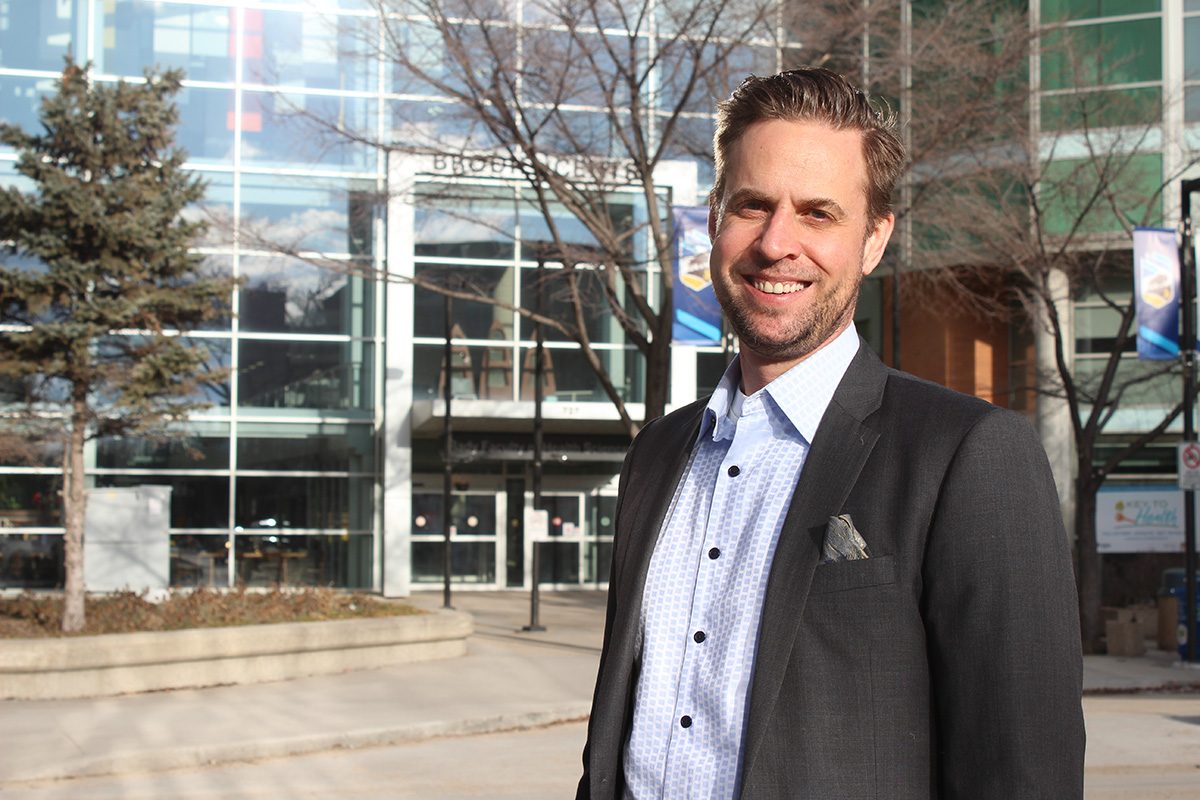
Dr. Paul Komenda
Kidney Check program receives UNIVANTS of Healthcare Excellence awards
The UNIVANTS of Healthcare Excellence awards has honoured the University of Manitoba’s Kidney Check program with two international prizes.
The Kidney Check team, which brings preventive kidney care to rural and Indigenous communities across Canada, was honoured with the Best of North America award and was one of three teams to receive UNIVANTS’ highest honour, the Global Winner award. The accolades recognize multidisciplinary teams challenging traditional thought with innovative problem solving and the novel use of laboratory science. The UNIVANTS of Healthcare Excellence awards program was created by health care organizations from around the world to inspire and celebrate exceptional projects.
“It’s humbling because looking at the number of people who applied, the number of countries involved, and past winners, it’s almost surreal that we won,” said Dr. Paul Komenda, professor of medicine and community health sciences at the Max Rady College of Medicine, Rady Faculty of Health Sciences, and research director at the Chronic Disease Innovation Centre. “It’s really a testament to lots of very different people in science and clinical medicine working together to achieve something truly innovative and important that is interesting to the rest of the world.”
Kidney Check carries out point-of-care testing to identify chronic kidney disease, diabetes and hypertension in remote communities across Manitoba, B.C. and Ontario, with plans to expand to Alberta and Saskatchewan. The team brings the equipment to people living in remote areas where testing is unavailable. More than 2,000 people have been screened and educated on the spot so far.
The equipment used can feed a proprietary algorithm which helps inform a patient’s care plan. An iPad app runs the algorithm that provides health-care workers with scripts to counsel patients based on risk, so there is a plan in place for every person tested.
The project’s partners include Dr. Barry Lavallee, Diabetes Integration Project, First Nations Health and Social Secretariat of Manitoba; Dr. Adeera Levin, University of British Columbia, CANSOLVE CKD; Binh Nguyen, eQol; Dr. AbdulRazaq A.H. Sokoro, associate professor of pathology, Max Rady College of Medicine, and Shared Health Manitoba; and a group of Indigenous patient partners.
“When we started, it was the wild west of point-of-care testing,” Komenda said. “People were treating the equipment like a glucose tester for diabetes, but it is far more sophisticated than that. It’s interesting to me that point-of-care testing hasn’t taken off more than it was thus far. We’re in the remote north – the hardest place on earth to do stuff – often without connectivity, with no roads, no transport supplies and we’re doing it successfully.”
Komenda said the model could not only be used in Indigenous communities across Canada and around the world, but also in other vulnerable populations, from places like inner-city San Francisco to rural Tanzania.
“The population is different, but the problems are the same,” he said. “We want to test people as soon as possible to apply treatments that prevent or delay kidney failure and the need for dialysis.”







Congrats to an inspiring team! Well done and well earned!